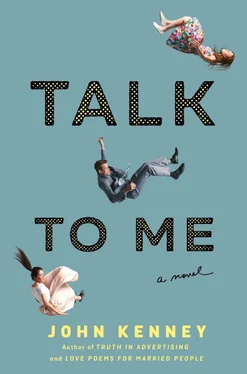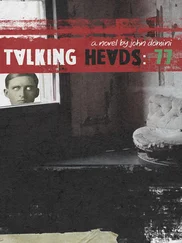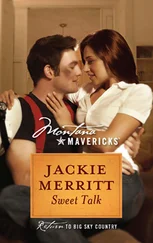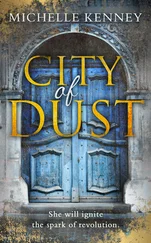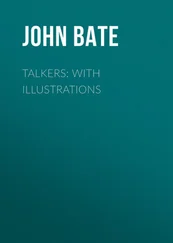Sri Lanka, she’d say to him.
Please, he’d answer. Colombo.
Both of them staring straight ahead, at the TV, trying not to smile. Claire would watch them. In their own world.
Burkina Faso, he’d say.
Easy peasy, she’d say. Ouagadougou.
You just like saying Ouagadougou, he’d say. Ouagadougou, he’d say in a ridiculous voice, over and over, making her laugh.
Ted showed her maps, showed her the places he’d been, explained countries and peoples and languages and history. If he’d been a bricklayer she would have memorized the composition of mortar and the differences between burnt clay bricks and sand lime bricks. She was a wonder to her third-grade classmates and teacher, who had no idea where Burkina Faso was. Franny showed the class on a map whenever she got the chance. “My father’s been there. Ouagadougou is the capital,” she’d say.
• • •
And then one day she let go of his hand.
Ted had thought it a mistake and went to take it back, reaching for it blindly, looking ahead. And then, looking down for her hand, saw her pull it back, though she continued staring straight ahead. His mouth opened to say something but he stopped himself. They continued on, into the school, the rush of parents and students, the comforting chaos of the morning drop-off, the overheated school, the smells: paint on the radiators, pencils, construction paper, and glue. Past the collages outside each classroom, the kindergartners and first-graders on the first floor, the bizarre drawings and little worlds worked on and cared about by the Trevors and Juanitas and Charlottes and Josephs. And outside her classroom door, he knelt down and she kissed him quickly on the cheek. Not the bear hug around the neck that lasted ten seconds, followed by holding his face in her hands, talking about how she would see him after school, followed by the slow walk into the classroom, where she turned around and waved, smiled and waved, blew him a kiss. Now, a quick peck on the cheek and she was gone, into the room, talking to a boy who was coloring (Patrick?) and then a girl with glasses (Penelope?), slipping her backpack off, hanging up her coat. A person. He stood for a time, looking in, half hiding himself, when the 8:30 bell rang to signal the start of the school day. He had been waiting for Franny to turn back and look at him. The teacher came to the door, surprised Ted was still there. She smiled and closed the door, and Ted stood alone in the hall.
He stopped outside the school’s entrance, stood on the old granite steps, worn smooth in the middle from years of small feet. She was a little girl. A tiny little thing and Ted would yell sometimes, lose his temper. The shame of it. The disgust. A wave of regret at lost moments when his impatience and smallness of character, his inability to rise above the parenting situation and minor stress—the “daddy-daddy-daddy” voices and lost shoe and late for school and phone ringing, work calling, rainy morning when he simply couldn’t attach the long lens to his mind’s eye. When he couldn’t laugh at it all. When he didn’t understand that it could end. That it would end. That it would be lost.
Who are you again? Oh yes, my daughter.
Tamara’s office, the twelfth floor. Ted, Simon, Tamara, a network lawyer named Camilla, and a PR guy named Maxwell. He’d written Ted’s apology.
Tamara was staring out the window. Everyone was waiting for her to speak. Ted had presented the email he had received from Franny and Henke formally proposing the story.
“Max?” Tamara said to the window.
“I like it and I don’t like it. I like it for the obvious optics. I don’t like it because scheisse is a rag and Henke Tessmer makes Rupert Murdoch look like Bill Moyers. I like it because we need women and the girl—sorry, what’s your daughter’s name?”
Ted stared at Maxwell, pure disgust.
Simon said, “Franny. Frances. She goes by Frances.”
“Anyway. She’s an unknown quantity. I don’t like it for that reason. I worry about inflaming the story. I also worry that the story is getting away from us. The best PR is to do nothing most days, let the speed of news and new scandals bury us deep under them. But nothing’s doing that yet. So, I say, with regret and fear, that we should let her write it. With one condition that I can’t see them ever agreeing to.”
“Which is?” Tamara asked.
“We have to see it first.”
“They’ll never agree to that,” Simon said. “What news organization would?”
Here Tamara turned from the window and stared at Simon.
“Of course they will,” Tamara said. “Because they’re not journalists. They’re entertainers. They want the booking. They want the show. Max. Call Graydon Carter. Tell him we can offer him an exclusive on Ted, with his daughter and his wife, the women in his life. Then call Frances Grayson and Henke Tessmer and tell them we’ll give them their story if we see it first. If not, Vanity Fair is in an Uber on their way to Ted’s house and Annie Leibovitz is riding shotgun.”
Tamara looked at Camilla.
“I’ll have a contract for them end of day,” Camilla responded.
“Thank you, everyone.” Tamara stood and Camilla and Max walked out of the office.
“Ted.” It was Tamara.
Ted stopped. So did Simon.
“Bryce is taking the chair tonight. Take the evening off.”
The two men were confused, little boys told it was bedtime when the sun was still out.
“What?” Ted said.
“Bryce is taking the chair tonight. Friday night. Low ratings night. Don’t worry.”
The words “Don’t worry” did not have the intended effect on Ted.
“Wait a minute,” Simon said, clearly annoyed. “Whose idea is this?”
“Mine.”
“Well, I don’t like it. She’s, like… eleven years old.”
“She’s twenty-six years old, thank you very much, with a law degree from Yale.”
Bryce Ringling had come from a Chicago affiliate six months ago. Tamara had taken a shine to her.
“I think part of getting past this moment is the consistency of seeing Ted in the chair. So I say, as head of the news division, that Ted’s in the chair tonight.”
“And I say differently,” Tamara said evenly.
“Yeah, well, news is my call.”
“No, Simon,” Tamara said, raising her voice. “The moment your man called an immigrant a Russian whore he made it my call.”
Tamara loathed raising her voice. She preferred intimidation by silence, by being smarter than everyone else. She turned and walked to the window, ujjayi breath. A long breath where the inhale and exhale are equal in length. In through the nose, out through the nose, the back of the throat. It was called ocean breath in yoga class, because of the sound, but Tamara had looked the word up. It meant victorious.
“You have the flu, Ted,” Tamara said. “That’s what we’re going to say. Let’s hope you get better.”
• • •
Last Christmas Eve. That’s the last time Ted had seen Franny. Claire had an open house every year, starting late in the afternoon. Drinks, food Claire had prepared for days. Old friends and their grown children. Over the years the numbers dwindled. Friends getting older, moving to warmer climes, their children marrying, starting traditions of their own.
Franny had left early Christmas morning with her then boyfriend, to visit the boyfriend’s family in Boston. Tom someone. A no one who’d followed Greg. It hadn’t lasted long.
Before that? The wedding of a family friend the previous June.
Before that? The previous Christmas.
Ted heard about her life from Claire.
• • •
Franny had called Claire two nights earlier.
Читать дальше
